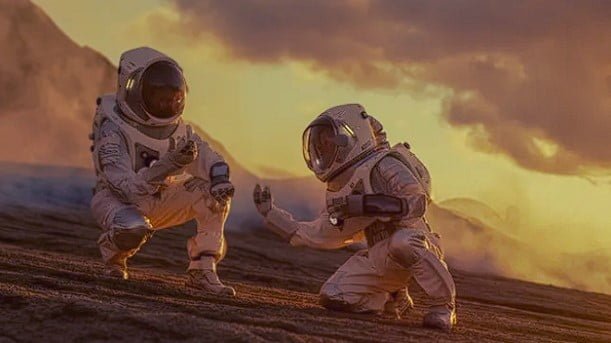Could settlers on the moon and Mars potentially cultivate distinct accents?

As humanity ventures into the solar system, the prospect of distinct accents evolving in isolated colonies becomes intriguing. The emergence of new accents can be attributed to various factors such as geographic isolation, cultural influences, and the unique social dynamics of extraterrestrial settlements.
In the near future, as humans embark on the journey to establish colonies beyond Earth, an intriguing question emerges: What might the accents of future space colonists sound like? This curiosity delves into unexplored territory, exploring the potential evolution of linguistic nuances as humans settle on the moon, Mars, and beyond.
Accents, an intriguing facet of human communication, typically emerge through imitation. Jonathan Harrington, Director of the Institute for Phonetics and Speech Processing at the Ludwig-Maximilians University of Munich, explains that accents develop subtly over time as individuals interact with those who have different speech patterns. When people with diverse accents become isolated, a unique blend of these accents emerges within the group, forming a distinctive new accent.
In a 2019 study led by Harrington, researchers isolated in Antarctica displayed individual phonetic shifts, signaling the initial stages of a new accent formation. Drawing parallels, Harrington suggests that similar accent changes could occur rapidly in small space colonies, where isolation is heightened, leading to a distinctive linguistic identity.
While colonists on Mars or the moon might exhibit audible changes within months, the establishment of enduring accents would likely require a sufficiently large colony with generational continuity. New members introduced during the early stages could influence the accent trajectory, but once fully established, the accent would likely evolve independently of newcomers.
The dominant accent within the group would shape the emerging accent. For instance, Harrington cites the Australian accent, influenced by the predominant “Cockney” accent of original settlers. Consequently, unless future space colonies consist of groups with identical accent mixes, diverse accents are likely to develop.
The unique environmental factors of the moon and Mars might not have a significant impact on accent formation. However, predicting these accents requires knowledge of the astronauts’ original accents. Harrington suggests that once colonists are selected, predictions about accent evolution could be made using computer learning programs, as demonstrated in the Antarctica study.
In the vast expanse of space, the linguistic tapestry of future human colonies may echo the fascinating interplay of diverse accents, offering a sonic reflection of the cosmic journey.








